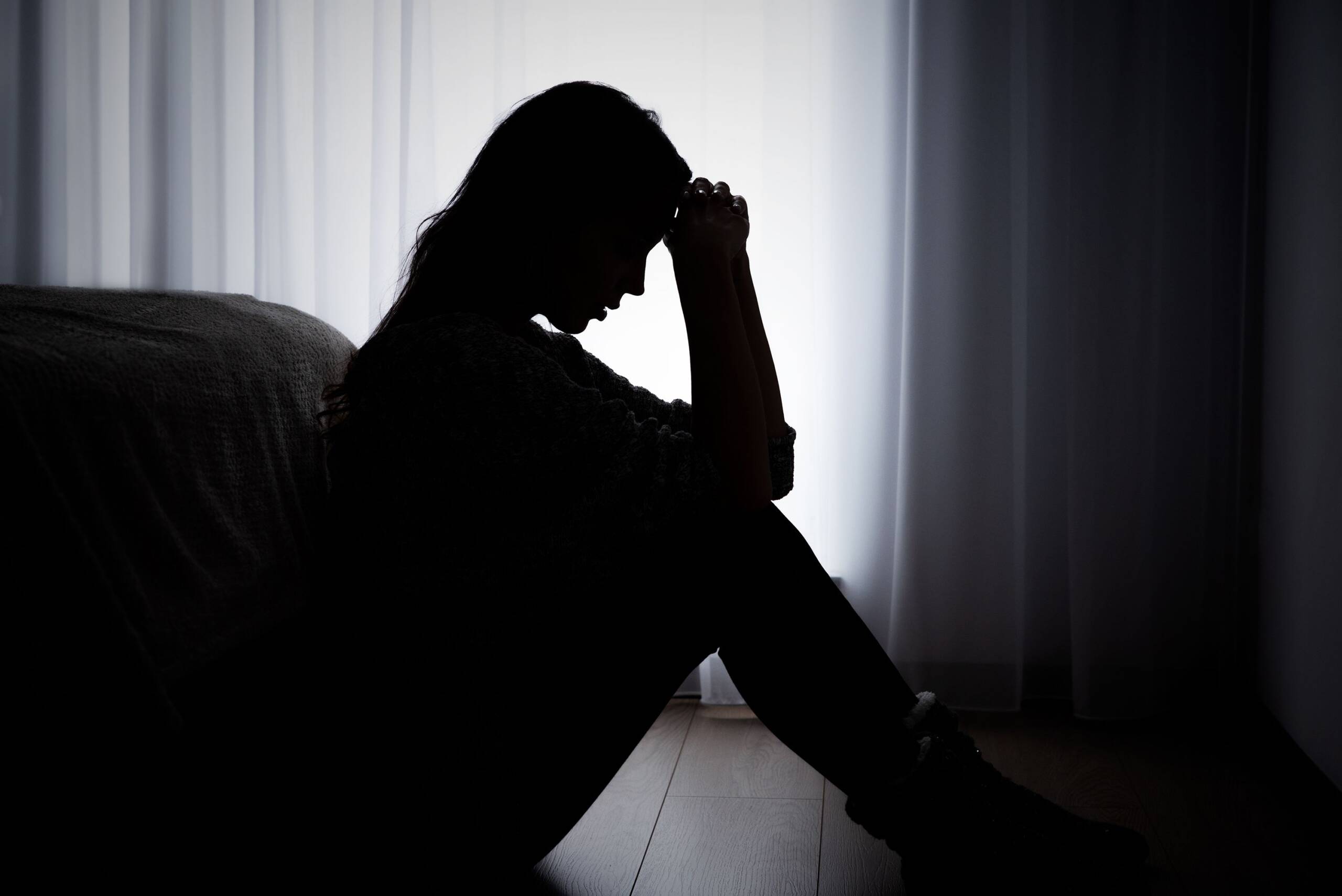By Lawal Mustapha
What makes this piece of writing so crucial? It is meant to encourage us all to think freely and be alert. We can always trace the origins of our depression back to the same set of ingrained ideas and attitudes. It’s likely that I’ll spiral into depression if I tell myself that I’m unattractive, nasty, and destined to be unsuccessful in life. Or if I tell myself things like, “I have to acquire a job paying me millions within a month to thrive in life,” I could feel down on myself if I don’t achieve this goal. It’s no secret that our thoughts and actions shape our experiences, so it’s up to us to make the most of opportunities to improve ourselves and the world.
Depression, sadness, and anxiety are common responses to setbacks in life, the death of a loved one, or a blow to one’s sense of self-worth. But it’s important to seek help when these symptoms persist for a long time and interfere with daily life.
Therefore, it’s crucial that everyone knows the signs of depression, the reasons we feel stuck, and the solutions to this problem.
What All Nigerians Should Know About Depression
A widespread fallacy is that depressed people know they’re depressed or that others can tell by mere observation of their mood, appearance, or conduct. Most unhappy individuals, however, get dressed and go about their daily tasks, outwardly appearing like typical people. Yet, an internal conflict is brewing.
Depression can subtly alter a person’s thought processes, perceptions, emotions, and behaviours. Depressive symptoms include sadness, a lack of interest or pleasure, low energy, feelings of guilt or low self-worth, disturbed sleep and eating habits, and impaired concentration. Suicidal thoughts are a common outcome. Many people fail to recognize these indicators of depression, especially Nigerians, who tend to spiritualize everything.
Depression is distinct from grief after a loss or a traumatic experience. Sorrow isn’t associated with feelings of shame the way depression is. Grief is often accompanied by positive emotions and fond recollections of the departed. Major depressive disorder is characterized by persistent sadness.
Approximately 280 million individuals, according to the World Health Organization, are affected by depression. Not all depressed people show symptoms, and a person’s appearance may not reflect depression. It’s crucial to remember that depression’s intensity varies from person to person, and some individuals who have the illness may maintain regular lives despite its symptoms. A category of conditions called “high-functioning mental disorders” often goes unnoticed in society. High-functioning mental illness refers to mental health disorders that are hard to spot in daily life. Individuals with these conditions may range from being unemployed to full-time instructors, from well-dressed businessmen to good parents of the “perfect” family.
Specifically, 7 million Nigerians are depressed, which is a major public health issue. Yet, other population-based investigations have found a substantially higher frequency. According to a survey, 25% of young individuals, 26.2% of elderly people, and 17% of IDPs are depressed.
According to UNICEF’s Profile of the World’s Children 2021 report, one in six Nigerian youth aged 15–24 regularly feels depressed, has little interest in doing activities, or is concerned, apprehensive, or anxious. Early data from UNICEF and Gallup’s international study of over 20,000 children and adults in 21 countries, including Nigeria, showed that a median of 1 in 5 young people aged 15 to 24 stated they regularly feel melancholy or have little interest in doing activities.
Another study found that 20% to 59% of HIV/AIDS patients are depressed, with the highest rate in north-central Nigeria. According to a 2013 Western Nigeria study, 44.5% of clinical patients are depressed.
Even though depression affects all genders, women are more likely to suffer from it. According to the WHO, depression affects women 50% more than men. Depression affects 5.95% of African women and 4.9% of men. Females are also at risk of depression in Nigeria, according to studies. Poor socio-economic position and intimate partner violence, which are more widespread among women, are likely to blame for this gap. Also, almost 50% of women are illiterate and unemployed, while 28% and 7% of women reported suffering physical and sexual assault throughout their lifetimes. Many new mothers suffer from postpartum depression. New moms in Nigeria have a frequency of 14%–20%. Single mothers and girls are risk factors for postpartum depression in Nigeria. This underlines how culture and society affect health issues in the country.
Tips to Avoid Depression
Even though depression is a worldwide problem, the good news is that there are many ways to avoid it, deal with it, and get better from it. In this piece, I covered how to spot it; now I’ll go over some preventative measures. Depression can be prevented and treated in part by making changes to how you act and learning new ways to deal with problems. Even though everyone has a different set of triggers, these are some of the best ways to avoid depression.
- Regular Exercise
One of the finest things you can do for your mental health is to exercise consistently. The Mayo Clinic highlights many main ways in which exercise can aid in the treatment and prevention of depression.
- It raises core body temperature, which has been shown to have a relaxing impact on the neurological system.
- Chemicals like endorphins are produced, and they have been shown to improve mood.
- Chemicals in the immune system that have been linked to increased depression are diminished.
- Cultivate a good human network
Keeping in touch with friends and family and being involved in social activities is good for our mental health. Trusted Sources research has found that social support reduces the risk of developing depression. Even if you’re really busy, make time to get in touch with loved ones on a regular basis. The best way to meet new people and expand your social circle is to get out and about as often as possible and try out different funny activities like games with people.
- Stress reduction
Long-term mental or physical stress is one of the most common causes of depression that can be stopped. Effective stress management and stress coping skills are crucial for maintaining good mental health. If you want to reduce your stress levels, don’t take on too much, practice some form of attentive thinking, and master the art of letting go of what you cannot change.
- Be sure to get plenty of rest
For optimal mental and physical well-being, getting enough sleep is crucial. Avoiding screen time (including on your phone) in the two hours before bedtime has been shown to improve sleep quality. Sleep better by meditating before bed and avoiding caffeine after midday.
- Eat healthily
Recent research has shown that a high-fat diet can have the same effect on mood as long-term stress. In addition, a poor diet might prevent you from getting the vitamins and minerals your body needs to function properly. So, eat lots of fruits and vegetables and a well-balanced diet. Cut back on sugary and fatty meals and limit or get rid of processed foods. Eat extra fish, flaxseed, and other foods high in omega-3 fatty acids.
- Reducing social media usage
Studies have shown that spending too much time on social media might cause or make depression or low self-esteem feelings worse. If you are addicted to social networking sites, you might not be able to spend quality time with your family or coworkers. Decreases in depression are associated with reduced social media use. You may accomplish this by uninstalling any irrelevant social media apps from your phone. In order to prevent yourself from wasting time on social media, install a site-blocking extension that limits your access to specific sites for a specified period of time, and only check in once per day with a specific goal in mind.
- Keep your daily decisions to a minimum.
In his book “The Paradox of Choice,” psychologist Barry Schwartz says that people who try to make the best decision possible in every situation are more likely to feel depressed when they have too many choices. Options abound in most people’s day-to-day lives. I can’t make up my mind on what to wear on my feet today. Is it preferable to eat an orange or an apple? What’s your preferred breakfast meal: rice or toast and beans? Anxiety over making the “right” choice has been linked to depression.
- Get professional assistance.
Don’t wait to obtain assistance if you’re experiencing persistent depressive symptoms. Your doctor might recommend a mental health professional or counsellor close by.
Mustapha (M.Ed in view), excels as a counselor, educator, researcher, and tech consultant. His passion for community service drives his multifaceted contributions. Feel free to connect with him at Mhustealawal@gmail.com.



